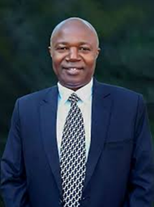报告人:Joseph Awange(香港理工大学 教授)
时间:2025年5月9日(周五) 15:00-16:00
地点:测绘馆206报告厅
报告简介:
The integration of Earth Observations (EO) and Artificial Intelligence (AI) is revolutionizing climate science and environmental management, enabling unprecedented understanding, monitoring, and anticipation of complex Earth system dynamics. Advances in satellite sensor technology, including superspectral imagery, have dramatically increased the volume, resolution, and accuracy of environmental data collected globally. Coupled with AI and deep learning, this vast data stream is transformed into actionable insights that support early warning systems, greenhouse gas emissions monitoring, disaster response, and sustainable resource management. AI models not only enhance detection and prediction of climate phenomena but also improve interpretability through explainable and causal deep learning, bridging the gap between data-driven forecasts and physical understanding.
Here, we present cutting-edge examples of integrating AI and EO technologies to address environmental challenges. These include an IoT-based fire and smoke detection system powered by MobileNetV2, the use of GNSS-AI to enhance air pollution monitoring in the Greater Bay Area (GBA), and the fusion of space geodesy and AI to support resilience and adaptation in the face of climate change. These innovations demonstrate the transformative potential of AI-EO integration in building a more sustainable and climate-resilient future.
报告人简介:
Joseph Awange is a Professor of Environmental Geoinformatics at the Hong Kong Polytechnic University, Department of Land Surveying and Geo-Informatics (LSGI), Hong Kong. In addition, Joseph is currently serving as (i) the Acquisition Manager for Springer Nature (world-leading research, educational and professional publisher) in charge of Earth Sciences, Geography, and Environment books and (ii), the Associate Editor of the top ranked Remote Sensing of Environment, as well as Science of Remote Sensing. He has been awarded the 2008-2011 Ludwig Leichhardt Memorial Fellowship for experienced researchers. In 2015, he won all three major Fellowship Awards: Alexander von Humboldt (Germany), Japan Society of Promotion of Science (Japan), and Brazil Frontier of Science (Brazil) to carry out research in those countries. Joseph also won the 2019 Alexander von Humboldt support in acknowledgment of his scientific achievements in his specific academic field and in recognition of his contribution towards scientific cooperation with German colleagues.